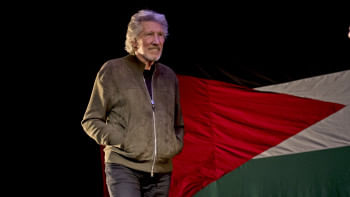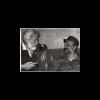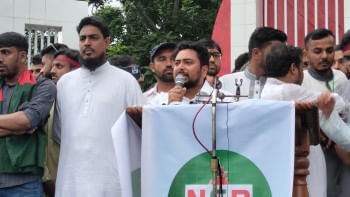Comedians navigate Israel-Palestine conflict through humour

Comedy has long been recognised as a potent medium for social commentary and critique. Amongst the myriad of issues it tackles, the Israel-Palestine conflict has not escaped the attention of comedians worldwide. Employing humour as a mechanism for protest and expression, comedians have increasingly utilised their platforms in recent years to spotlight the complexities and tensions inherent in this ongoing conflict.
Comedians have taken on the task of addressing the Israel-Palestine conflict from their respective approaches while navigating its sensitive and controversial nature.
Their approach involves using wit, satire, and irony to dissect the political, cultural, and humanitarian aspects of the conflict. Comedians, with their capacity to make people laugh while delving into difficult and contentious topics, inspire introspection and critical thinking, leading to a more thorough comprehension of the nuances involved. These personalities are drawn to discussing the Israel-Palestine conflict primarily because they have the power to challenge preconceptions and spark conversation in a way that traditional journalism and political debate sometimes fail to do. They may utilise humour to captivate audiences who might otherwise be reluctant to participate in such divisive conversations.
However, addressing this issue through comedy is not without its challenges. The Israel-Palestine conflict is deeply entrenched in history, politics, religion, and human rights, making it a sensitive and polarising topic. Comedians who choose to broach this subject often face backlash and criticism from various quarters, as humour is subjective and can be interpreted in multiple ways. What one individual considers amusing, another may perceive as offensive or inappropriate.
Despite the risks, several comedians have fearlessly used their craft to address the conflict. Comedians like Bassem Youssef, John Oliver, Michael Kosta, Sam Obeid, Daniel Fernandes, Shahak Shapira, Gianmarco Soresi, Pete Davidson, and Dave Chappelle have incorporated their personal experiences and observations into their comedy routines. They navigate through the complexities with sharp humour with their own identities and backgrounds to add depth and authenticity to their performances on the subject matter.
John Oliver, renowned for his observant and provocative humour, has frequently addressed difficult and divisive subjects on "Last Week Tonight". He operated his comedic style to dissect the complexities of the situation regarding the Israel-Hamas conflict both informatively and humorously. One of the key strengths of Oliver's segments is his ability to balance humour with serious analysis; he often presents a nuanced perspective, acknowledging the sensitivity of the topic while using humour to underline the gravity of the situation. This blend of comedy and comprehensive reporting allows him to engross viewers emotionally while delivering factual information.
Oliver certainly doesn't hold back when criticising international responses, policies, and actions, all to hold those accountable for sustaining the cycle of violence and suffering in the region. John Oliver's approach to discussing the Israel-Hamas conflict on "Last Week Tonight" exemplifies the potential of comedy as a means of shedding light on complex geopolitical issues. His segments have succeeded in reaching a broad audience, raising awareness, and encouraging viewers to engage with a deeply entrenched and emotionally charged conflict.
Sammy Obeid's recent comedy bid "COMEDIAN SPEAKS ON PALESTINE" on YouTube could serve as a prime example of how stand-up comedians use their platforms to discuss and bring attention to sensitive global issues like the Israel-Palestine conflict. As a Palestinian American, Sammy Obeid delved into the complexities of the conflict, incorporating his perspectives, experiences, and comedic elements to grip audiences appropriately on this astonishingly divisive topic. Obeid used satire, anecdotes and ingenious observations to shed light on various aspects of the conflict, all while entertaining the audience.
Recently popular Egyptian-American comedian and satirist Bassem Youssef has provided incisive arguments on the Israel-Palestine conflict, highlighting its injustices. Youssef emphasises the importance of satire as a tool to expose the realities faced by Palestinians under Israeli occupation. He believes that humour can serve as a powerful tool to highlight extreme circumstances and struggles. Concerned with the misapplication of labels such as "antisemitism" to silence critics of Israel, Youssef fervently supports open discussions and refutes the idea that criticising Israeli policy should be considered unacceptable or a threat to one's career. He highlights the adverse effects on Palestinian lives and denounces Israel's disproportionate responses and actions, particularly in the West Bank and Gaza Strip. Youssef believes that Israel's policies not only exacerbate tensions but also contribute to radicalisation, making it harder to achieve a peaceful resolution.
Youssef's perspective underscores the necessity of justice, compassion, and a more thorough comprehension of the Palestinian narrative. He insists on recognising the rights of Palestinians, stressing that genuine peace can only be achieved through acknowledging and addressing their legitimate grievances.
Dave Chappelle during his comic gig at Boston's TD Garden, criticised Israeli movement in and against Gaza, by referring to them as "war crimes". He also condemned the US for backing Israel and the Hamas attack on October 7.
Pete Davidson hosted Saturday Night Live (SNL) during a time when the Israel-Hamas conflict was escalating. Davidson, who lost his father in the 9/11 terrorist attack, addressed the war by acknowledging his personal experience with tragedy. He empathised with the suffering of both Israeli and Palestinian children and expressed his discomfort in seeing the images of the conflict.
Davidson acknowledged the severity of the situation and refrained from delivering his usual comedic monologue. He shared a childhood memory of finding solace in comedy after his father's death, stressing that sometimes humour can be a way to navigate tragedy. Davidson aimed to bring some levity to his piece on acknowledgement through comedy and admitted that attempting to be funny amid tragedy is his way of coping.
Comedy as a form of protest transcends geographical boundaries. Comedians from different parts of the world, regardless of their affiliations, have taken to addressing the conflict. Their varied cultural perspectives bring diverse insights to the table, highlighting the universal impact of the issue. Comedy's role in addressing the ongoing Israel-Palestine conflict is significant to the freedom of expression and the arts in fostering dialogue and understanding. It serves as a reminder that even in the most challenging and sensitive of circumstances, humour can be a powerful tool for initiating conversations, challenging perceptions, and advocating for change.
While the Israel-Palestine conflict remains a deeply complex and emotionally charged issue, comedians have dared to venture into this contentious territory, using their comedic prowess to shine a light on the multifaceted aspects of the conflict. Through their wit and humour, they provoke critical thought, inspire empathy, and encourage audiences to engage with this pressing global concern, in a different light. Comedy, as a form of protest, pursues to carve out space for dialogue and understanding, proving that laughter can sometimes be the first step towards reconciliation and change.

 For all latest news, follow The Daily Star's Google News channel.
For all latest news, follow The Daily Star's Google News channel. 










Comments